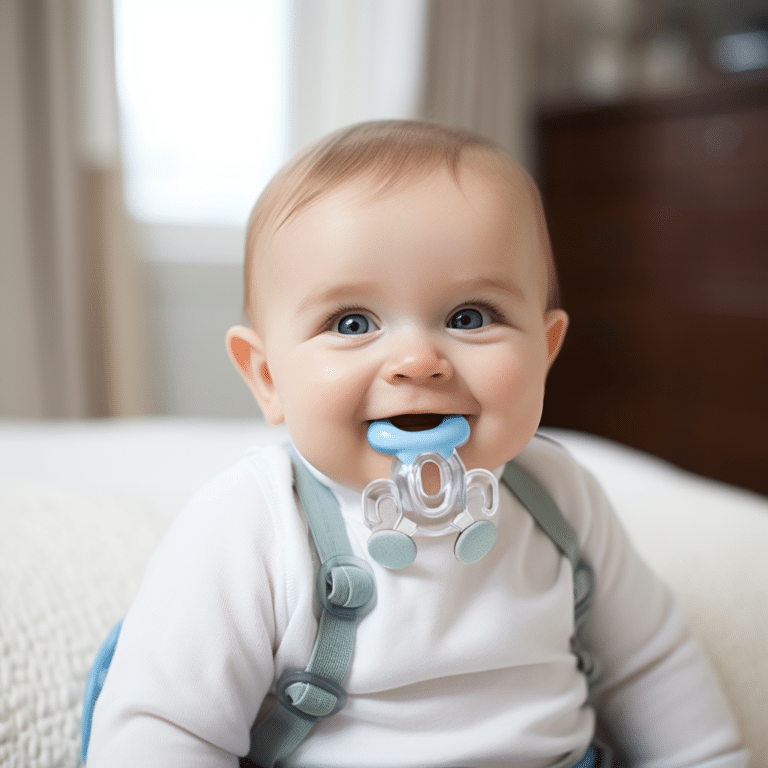Parenthood: A Comprehensive Guide for Newborn Baby Care

A Newborn Baby Care brings a whole new world of exploration. From sleepless nights to diaper changes, new parents experience a whole range of challenges. Joy and exhaustion come hand in hand as they adapt to their bundle of joy.
At first, parents must figure out how to feed their little one. Breastfeeding or bottle feeding routines need to be established. This can be an exhausting and challenging process. Baby and parent must both adjust.
Sleep is a rare commodity. Babies have unpredictable sleep patterns and require frequent wake-ups. Parents must find ways to get rest whenever possible.
Healthcare check-ups need to be scheduled. Pediatrician visits, vaccinations – all these ensure the baby grows well. Parents can also ask questions during these visits.
In ancient times, the birth of a baby was celebrated with immense joy and festivity. Families came together to welcome the newborn and shower them with love and blessings. The baby symbolized hope for future generations.
Life after the birth of a baby comes with a lot of love but its challenges too. It requires patience, resilience and adaptability. Each day brings new discoveries and milestones as parents embark on parenthood.
Taking care of the newborn baby
Newborn Baby Care: A Professional Guide
Taking care of a Newborn Baby Care requires careful attention and specialized knowledge. Here’s a step-by-step guide to ensure the well-being of your little one:
- Feeding: Make sure to breastfeed or bottle-feed your baby on demand, offering the appropriate amount of milk based on their age and weight.
- Diapering: Change your baby’s diapers frequently to keep them clean and prevent diaper rash. Use gentle wipes and apply a protective ointment if necessary.
- Bathing: Give your baby a sponge bath until their umbilical cord stump falls off. Use warm water and mild baby soap, being extra cautious around their delicate skin.
- Nurturing Sleep: Follow a consistent bedtime routine, ensuring a safe sleep environment. Place your baby on their back to reduce the risk of sudden infant death syndrome (SIDS).
- Hygiene and Safety: Keep your baby’s surroundings clean, regularly wash their clothes and bedding, and baby-proof your home to ensure a hazard-free environment.
Additionally, it’s vital to be aware of precise details often overlooked, such as maintaining a comfortable room temperature and frequently sterilizing feeding equipment. Ensuring proper support and stability during your baby’s first months contributes to their overall development and well-being.
For an interesting historical perspective, as early as the 1700s, there were documented guides on infant care, including insights into swaddling practices and the use of wooden cradles. These historical documents exemplify the long-standing importance placed on taking care of newborns throughout the centuries.
By following this professional guide and considering the historical context of newborn baby care, you can confidently provide the necessary care and support for your little one’s early stages of life.
Newborn babies have simple needs: food, sleep, and the ability to projectile poop like a tiny superhero.
Basic needs of a newborn baby
Newborns need essential things for their growth and wellbeing. Feeding, sleep, diapering, and bonding are all important. Plus, keep hygiene in mind. Ensure their environment is safe and free of suffocation risks.
A study in The Journal of Pediatrics showed skin-to-skin contact with newborns can improve temperature regulation, reduce stress, and help breastfeeding.
Taking care of a newborn requires dedication, patience, and love. Parents must meet their needs while providing a nurturing environment to ensure healthy development.
Feeding
Feeding a newborn is key for their growth and wellbeing. It is important to give them the correct nutrients at the right time.
Let’s take a look at the following table:
| Age Range | Type of Feeding | Frequency |
|---|---|---|
| 0-3 months | Breastfeed/formula | Every 2-3 hours |
| 4-6 months | Breast milk + solids | Every 3-4 hours |
| 7-12 months | Breast milk/formula + solids | Every 4-5 hours |
Newborns need either breastfeeding or formula every 2-3 hours in the first few months. As they get older, around 4-6 months, breast milk should still be the main source of nutrition whilst introducing solids gradually. From 7-12 months, breast milk/formula remains essential with regular solids.
Here are some tips for proper feeding:
- Burp your baby: After each feed, hold them upright and gently pat their back to release trapped air in their tummy. This avoids discomfort and reduces reflux.
- Follow hunger cues: Babies have different appetites. Look for signs like turning towards you, sucking on their hands or lips, or rooting motions. These mean they’re ready to feed.
- Create a calm environment: Have a peaceful, comfortable space to bond with your baby during feeds. Minimise distractions like loud noises or bright lights so they can focus.
- Practice responsive feeding: Notice your baby’s signs of fullness, like turning away from the bottle/breast, slowing down sucking, or falling asleep. Let them control the feeding process. Don’t try to make them finish a bottle or eat more than they need.
By following these tips, you can support healthy feeding habits for your newborn. Remember, each of these works to give them the nutrients they need in a positive experience for both of you.
Diaper changing
Diaper changing is an important part of looking after a newborn baby. More than just replacing a diaper! Let’s investigate the nuances of diaper changing.
- Hygiene is top priority. Always wash your hands before and after each diaper change.
- Use a tidy and safe area for diaper changing. Have all your supplies ready, such as diapers, wipes and disposal bags.
- Be gentle when handling your baby during diaper changes. Take care not to wake them or startle them.
Additionally, each diaper change is different. Pay attention to your baby’s cues – you may be able to sense when a change is needed, before they start crying.
Did you know that newborns need 10-12 diaper changes a day? According to the American Academy of Pediatrics, these regular changes help keep their skin healthy and avoid rashes.
Remember, diaper changing is a simple task, but it needs to be done with attention and care. Master this skill and you can provide your baby with the best possible care.
Bathing
Bathing your newborn needs special attention. Here are some important points:
- Before starting, make sure the room is warm and not drafty.
- Fill a basin or tub with lukewarm water. Check temperature with elbow or wrist.
- Gently hold head and support neck when lowering them into the water. Use one hand to support back.
- Use mild, fragrance-free baby soap to wash body. Avoid eyes and mouth.
Every baby is different, so adapt steps if needed.
Make bath time enjoyable! Play soft music or sing lullabies. Create a positive, soothing environment. Bonding during bath time strengthens emotional connection. Don’t miss out on this precious opportunity!
Establishing a sleep routine
Creating a sleep routine for your newborn is essential for their health. Here’s a 3-step guide to help you:
- Set a regular bedtime. Make it the same time each night, to regulate their internal clock and show it’s time for sleep.
- Make a calming sleep environment. Keep the room dark, quiet, and comfortable. Use soft light or white noise to make it peaceful.
- Follow a bedtime routine. Bathing, reading, or gentle massages can be part of the ritual. Be patient and adjust to fit your baby’s individual needs.
Prioritize setting up a sleep routine for your baby. This will promote their growth and long-term health. Don’t miss out on this vital step!
Providing comfort and soothing techniques
Hold your babe against your skin to bond and regulate temperature. Rock or sway in rhythm like in the womb. Sing or play calming music. Use a paci or thumb-sucking for comfort. Give baby a massage with oil or lotion. White noise is great for drowning out sudden noises and sleep.
Other factors: Comfy temp, avoid overstimulation, clean diaper. Every baby is unique, so find what works. Stay patient and attuned to cues.
Routine: Feeding, naps, bedtime routines. Consistency brings security.
Postpartum care for the mother
It involves providing support and assistance to ensure a smooth transition into motherhood. This care includes physical recovery, emotional support, and education on newborn care. The mother’s physical health is monitored, including healing from any potential complications. Emotional support is provided through counseling or connecting the mother with support groups. Education on newborn care includes breastfeeding support, baby care techniques, and postpartum depression awareness. Postpartum care aims to ensure the well-being of the mother as she adjusts to her new role and responsibilities.
It is important to note that postpartum care should not be limited to just the immediate weeks after childbirth. The care should extend to several months to address the mother’s physical and mental well-being fully. This includes regular check-ups to monitor her recovery progress, addressing any pain or discomfort she may be experiencing, and ensuring she has access to any necessary resources. Additionally, support should be provided for breastfeeding challenges, addressing any postpartum mood disorders, and promoting self-care.
Postpartum care is essential for the well-being of the mother after childbirth.
As each mother’s postpartum experience is unique, it is crucial to provide individualized and personalized care. This approach recognizes that not all women will have the same needs or challenges during this time. By tailoring postpartum care to the specific needs of each mother, healthcare providers can provide the support required to promote optimal postpartum well-being.
Historically, postpartum care for mothers has varied across cultures and time periods. In some societies, there were specific rituals and traditions surrounding the postpartum period, aimed at supporting the mother’s recovery and adjustment. For example, in traditional Chinese culture, there is a month-long period called “confinement” where the new mother receives rest, nourishing meals, and assistance with baby care. Similarly, ancient Greek and Roman cultures recognized the importance of postpartum care and had specific practices in place to support new mothers.
After childbirth, your body may feel like it’s been through a war zone, but hey, at least you have the battle scars to prove you’ve earned your stripes as a mom.
Physical recovery after childbirth
Emma cradled her newborn in her arms, feeling both joy and exhaustion. The postpartum aches were still there, a reminder of the journey she had endured. But she knew, with rest, care and support, she’d regain her strength and heal.
Prioritize rest to aid recovery. Lack of sleep can make it harder to cope with a newborn. Stay hydrated. Fluids help the body replenish after childbirth. Nutrition is key. Consume high iron, protein and vitamin foods to rebuild strength.
Introduce light exercises, such as walking or stretching, to improve blood circulation and speed up recovery. Seek medical advice if pain persists. Pain medications prescribed by a doctor can help manage postpartum pain.
Surround yourself with a supportive network of family and friends. This provides comfort and supports overall healing. Don’t compare yourself to others. Each woman’s experience is unique, and each body takes its own time to heal.
Rest and self-care
Postpartum recovery needs rest and self-care.
Rest helps the body heal.
Self-care helps you feel better mentally and physically.
3 points to remember:
- Rest is key for the body to heal after birth. It reduces fatigue and helps healing.
- Self-care activities like baths or mindfulness exercises can reduce stress and improve well-being.
- Light activities, like walks, restore energy and help you relax.
It’s important to know that every woman’s postpartum experience is different. A healthcare professional can give individualized advice.
Get a support system of family/friends to help you make time for rest and self-care.
Managing pain and discomfort
Pain and discomfort management post childbirth is key for Mom’s health. Try these strategies to help ease the pain:
- Take medicine as prescribed by your healthcare provider.
- Use ice and heat packs to reduce swelling and soreness around the perineal area.
- Do deep breathing, meditation, and gentle stretching to relax your muscles.
- Maintain good posture while sitting, standing, and breastfeeding.
For a smoother recovery, also:
- Stay hydrated with plenty of water.
- Ask friends and family for help with chores, breastfeeding, and emotional support.
- Make time for relaxing activities and hobbies.
- Connect with other new moms in postpartum support groups.
These practices help physically and emotionally. Incorporating them into your postpartum care plan will make the transition smoother. Don’t forget to consult your healthcare provider for customized advice specific to you.
Emotional well-being
The postpartum time can be tough. Mood swings, anxiety, and sadness are usual. Hormones, lack of sleep, and the new role of being a mom are factors. To manage these emotions, support from friends, family, and professionals is key.
Self-care is important for emotional wellbeing. Relaxing, pleasurable activities like baths, mindfulness exercises, reading, or hobbies can help moms find balance.
Seeking help is not weak; it’s strong. Talking about feelings relieves stress and prevents loneliness. Online support groups for new moms are great resources.
Remember: Emotional and physical well-being are equally important during postpartum. Prioritize self-care and reach out for help. You’re not in this alone!
Postpartum mood changes
Many women experience changes in mood after giving birth. These can range from joy to periods of sadness and anxiety. Here are some key points to understand about postpartum moods:
- Mood swings – It’s normal for new mums to have sudden shifts in mood. One moment they may feel happy, the next overwhelmed or tearful.
- Baby blues – About 80% of mums experience baby blues. This includes feeling sad, irritable or moody. It usually resolves within a couple of weeks.
- Postpartum depression – PPD affects around 10-20% of women. Symptoms include persistent sadness, loss of interest, difficulty bonding with baby, and thoughts of self-harm or hurting the baby.
- Postpartum anxiety – Some mums worry excessively about their own health or the baby’s health. This can lead to panic attacks, restlessness or difficulty sleeping.
- Postpartum psychosis – Although rare, this severe condition needs urgent medical attention. Symptoms include confusion, hallucinations, agitation and delusional thinking.
It’s important to note that postpartum mood changes occur regardless of it being the first or subsequent pregnancy. If you or someone you know is experiencing severe symptoms, seek help promptly.
Pro Tip: Seek support from family and healthcare professionals. Don’t be afraid to ask for help if you need it.
Seeking support and counseling if needed
Seeking assistance during the postpartum period is vital for a mother’s well-being. It can provide emotional and psychological help, aiding her through this life-changing stage. To make the most out of this:
- Voice your emotions and worries to those close to you.
- Let your loved ones know what support you need.
- Engage in counseling sessions with suggested strategies.
- Take out time for self-care and introspection.
Ensure nothing is left unresolved by being proactive! Remember to prioritize your needs, lean on others, and seek professional help when necessary. This will help create a healthy postpartum experience for both you and your little one.
Life adjustments and changes
Life adjustments and changes after childbirth can be demanding and transformative. The arrival of a baby brings about a multitude of modifications in various aspects of life that extend beyond the immediate postnatal period.
These adjustments encompass physical, emotional, and social spheres, reshaping routines, priorities, and relationships.
1. Self-care: The birth of a child necessitates an increased focus on self-care. Mothers often experience changes in their bodies, health, and well-being, requiring them to prioritize their physical and mental health. This may involve adapting to new sleep patterns, implementing exercise routines, and seeking support from healthcare professionals.
2. Parenting roles: When a baby is born, a person takes on the new job of a parent. This job comes with responsibilities like caring for, feeding, and making sure the child grows up well. Getting used to this new identity means learning new things, forming new habits, and being open to personal growth and self-discovery.
3. Relationships: The arrival of a baby significantly impacts relationships. Partners must navigate their roles as parents and maintain open communication to support each other during this transformative phase. Friendships may also require adjustments as priorities and availability change. Building a network of support, including family, friends, and parenting communities, becomes essential.
4. Work-life balance: Balancing the demands of work and family becomes a crucial aspect of life adjustments after childbirth. It often involves negotiating leave arrangements, flexible work options, and childcare arrangements. Reevaluating career goals and exploring new opportunities may be necessary to ensure a harmonious blend of professional and personal life.
5. Personal aspirations:
The birth of a baby may lead individuals to reassess their personal aspirations and goals. Priorities shift, and new dreams and aspirations emerge. This may involve modifying educational or career plans, pursuing new hobbies or interests, or finding fulfillment in the moments shared with the child.
Furthermore, the journey of life adjustments and changes after the baby’s birth is unique for every individual. From the initial adjustment period to long-term adaptations, the transformative power of parenthood continuously shapes one’s life. Embracing the Newborn Baby Care challenges and joys that come with it can lead to profound personal growth, strengthened relationships, and a deepening understanding of oneself.
Sarah, who had just become a mother, was one person whose life had to change and adapt. After her baby was born, she was tired and couldn’t get to sleep at the same time every night. She was determined to put her health first, so she talked to health professionals, changed the way she slept, and finally got her energy back. By putting herself first, she was able to accept the changes that came with becoming a parent. This gave her the strength and resolve to handle the challenges that came her way. Sarah’s journey shows how life changes a lot after a baby is born, and how much self-care and drive can help a person grow into a better person.
Trying to establish a routine with a newborn is like attempting to fold a fitted sheet—it’s frustrating, confusing, and will inevitably end in a complete mess.
Adjusting to a new routine
Establishing structure is key for adjusting to a new routine. Create a daily schedule and assign specific time slots for tasks like work, exercise, and leisure. This way, you can manage time and ensure each task gets attention. Structure provides stability in the chaos of transition.
Be flexible and open-minded during the adjustment. Embrace the unknown; it may lead to new opportunities and personal growth. Changes may feel uncomfortable or overwhelming at first, but they can open up exciting experiences and fresh perspectives.
Seeking support helps to adjust to a new routine. Connect with others who have been through similar transitions. Join support groups, or reach out to friends and family. Having a support system helps you know that you’re not alone.
Balancing work and parenting responsibilities
Working and being a parent can be hard, but it can also be very rewarding. You have to plan your time and decide what to do first. Taking care of your child and meeting goals at the same time takes patience and the ability to change. Setting limits, giving jobs to other people, and talking to your boss about your parenting needs are all very important. Quality over number lets you spend more time with your child and builds strong relationships.
Also, asking family or trusted people to Newborn Baby Care help with childcare can be helpful. Speak with your partner about dividing household duties to find balance in career and parenthood. Hiring cleaners or food delivery services can provide time for relaxation.
Take advantage of technology. Use virtual platforms that allow flexible hours or remote work. This way, you can have more involvement in your child’s life and progress in your job.
Pro Tip: Look after yourself mentally and physically. This enables you to be more present for your loved ones and career. Finding harmony may be hard, but valuing each part of life will help you succeed.
Nurturing the bond with the baby
Bonding with your baby is a must for parenting. It requires time, effort, and patience to build a strong connection. Interact with your little one through gentle touch, talking softly, and eye contact. Cuddling, singing lullabies, and playing together can help strengthen the bond.
As your baby grows, adapt your bonding techniques. For example, encourage them to explore textures or play with age-appropriate toys. This stimulates curiosity and strengthens the bond. Every baby is unique, so pay attention to their cues. Some prefer quieter activities while others enjoy more active playtime. Knowing their individual needs will help create a strong parent-child bond.
Harvard Medical School found that babies who have secure attachments with their parents have better emotional regulation skills later in life.
Conclusion
Parenthood is speedy. The journey doesn’t end when the baby is born. Preparing for important aspects is essential – like the health of both mother and baby.
New parents should prioritize self-care – rest, balanced diet, stress management. This will help you be attentive to your baby’s needs.
Bonding with your newborn is a must – skin-to-skin contact, cuddling, talking, singing, reading. This helps create a strong emotional connection.
Breastfeeding has many benefits – nourishment, immune system, healthy growth. Get help from healthcare professionals or breastfeeding support groups.
Routines bring stability to the daily life with a newborn – feeding, sleeping, playtime. This regulates their sleep and builds security.
Stimulate development – tummy time, playing, sensory exploration. This promotes physical coordination, cognitive skills, social interaction.
Ask other parents for advice or sign up for parenting classes. This helps with safety, growth, common illnesses, and other things.
Every baby is unique – trust your instincts and seek professional advice when needed.
Enjoy the joy of parenthood, caring for yourself and your baby. This sets the foundation for a bright future.
Frequently Asked Questions
Q: What happens immediately after the baby is born?
A: After the baby is born, Newborn Baby Care the medical staff will quickly assess the baby’s health, dry and warm them, and clear their airways if necessary. They will also perform a series of routine procedures like weighing the baby, measuring their length, and giving them vitamin K injection.
Q: Can I hold or breastfeed my baby right after birth?
A: Yes, cuddling and breastfeeding your baby right after birth is usually a good idea. Skin-to-skin touch is good because it helps the baby’s body temperature stay stable, encourages bonding, and makes it easier to start breastfeeding.
Q: What tests and screenings are done on the baby in the first few days?
A: In the first few days after birth, the baby goes through a number of tests and checks. This generally includes a screening test for newborns to find any hidden health problems, an exam for jaundice to check bilirubin levels, and a hearing test.
Q: How long will the baby stay in the hospital after birth?
A: The length of the hospital stay varies depending on various factors such as the mother and baby’s health, type of delivery, and any complications. In general, for a normal vaginal delivery, the baby and mother may be discharged within 24 to 48 hours if both are stable and healthy.
Q: What follow-up care will my Newborn Baby Care after leaving the hospital?
A: Once your baby is out of the hospital, he or she will need to see a pediatrician regularly to check on their growth and development. Most of the time, these trips include vaccinations, weight checks, physical exams, and advice on how to feed and care for the animal.
Q: How can I ensure a Newborn Baby Care for my baby at home?
A: To ensure a Newborn Baby Care for your baby at home, create a comfortable and safe environment. Establish a routine for feeding, sleeping, and diaper changes. Offer plenty of skin-to-skin contact, respond promptly to their cues, and seek support from family, friends, or healthcare providers whenever needed.







